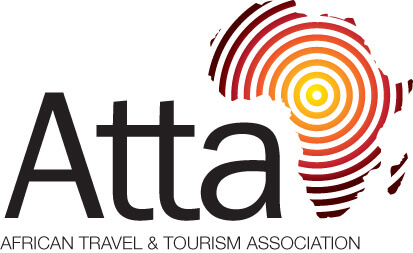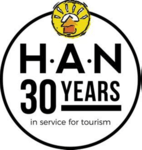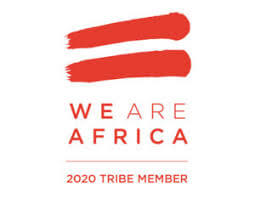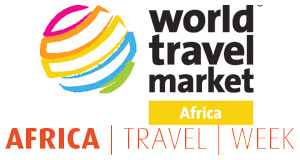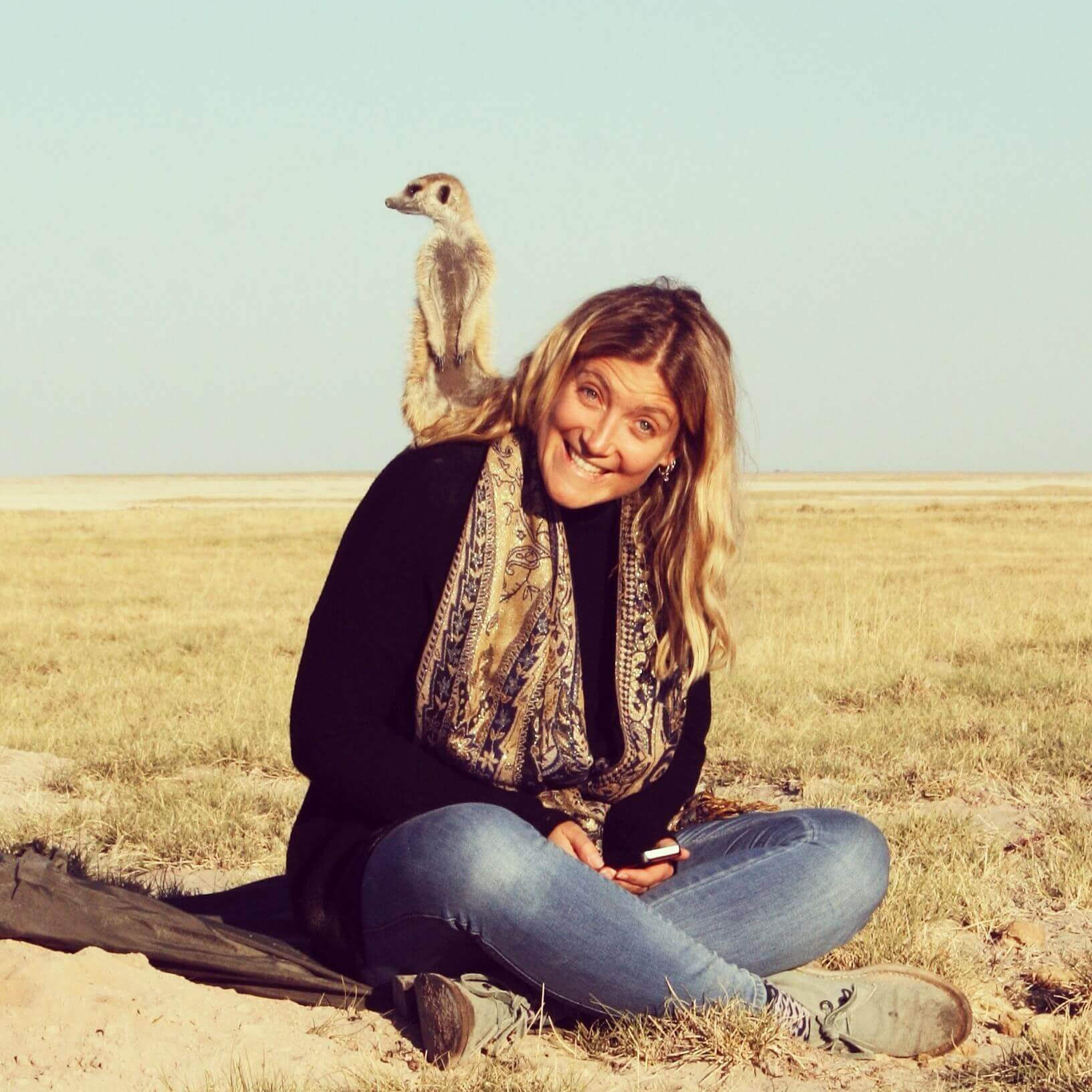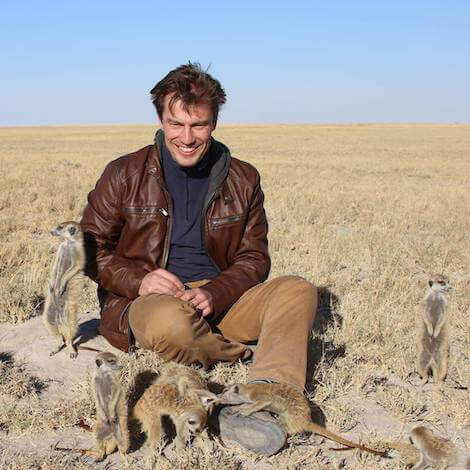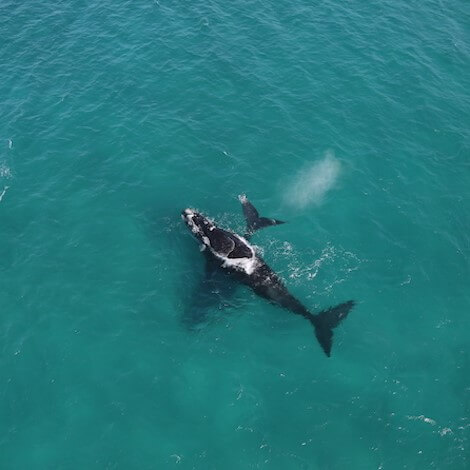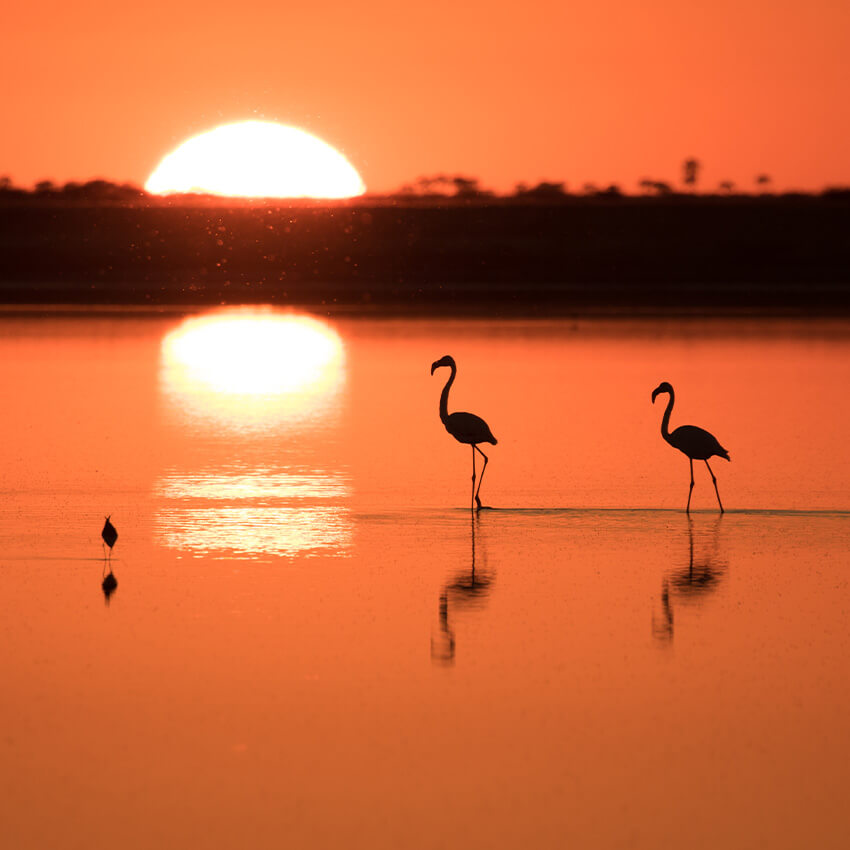Meet Our Characters: Ralph Bousfield
 Scott Ramsay
Scott Ramsay
 September 13, 2020
September 13, 2020
When Ralph Bousfield’s father Jack started Botswana’s first photographic safari camp in 1962 on the edge of Makgadikgadi Pans, people thought he was mad. Remote, isolated and harsh, this part of the Kalahari was unknown to most, except the Bushmen who had been living here for several thousand years. But Jack’s decision was a stroke of genius. Located in one of the most spectacular regions of Africa, Jack’s Camp eventually became an icon of safari travel.
Today Ralph owns and operates Uncharted Africa, a company that’s part of Natural Selection, and also includes several other camps around Botswana, including Camp Kalahari, San Camp and Mapula Lodge.
Jack’s Camp is currently being rebuilt, ready to open at the end of the year, and so it seemed an apt time for Scott Ramsay to ask Ralph a few questions about the power of the Kalahari, what it’s like to grow up with Bushmen, and how Botswana’s wildlife can make a difference to its people.
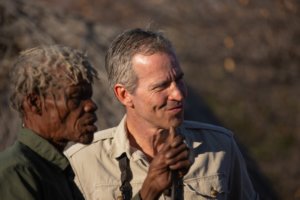
Jack’s Camp is being rebuilt, and will reopen towards the end this year. But it’s one of the longest-running safari camps in Africa, started in 1962 by your father. How did it all begin?
My family had lived in Tanzania since the 1860s. My father Jack grew up near Lake Rukwa in the south. It was – and still is – a very wild area of the continent. He was a hunter, and we were a bush family, through and through. I was born there in 1962, but just six weeks later, my father moved our family to Francistown in Botswana.
He was looking around for a place to base himself, and my dad had a copy of Livingstone’s map of Bechuanaland, as it was called back then before the country became independent of Britain. The route north from Francistown was called the missionary road, the same route Livingstone took, and it went straight through the Makgadikagdi Pans.
My father looked at the map, and asked some locals about that area. Someone told him that “only idiots go there.” And he replied, “well, that’s just the place for me!” So he went north and set up camp at the northern end of Ntwetwe Pan, just west of Livingstone’s original route.
When my dad died in 1992 in a plane crash, everyone asked me what I was going to do. I told them that, of course, I’m going to keep the camps going. They all looked at me, as if to say: “We knew your Dad was nuts, but thought you were kind of ok. Now we know you’re not!”
But that’s the power of the place. The Makgadikgadi is just extraordinary, and it’s my home. Always has been, always will be.
The Makgadikgadi is not a typical safari destination. Now Jack’s Camp is regularly acknowledged as one of the most sought-after camps in Africa. Jack’s Camp has almost single-handedly made the area famous. What originally attracted your father to this part of Africa?
I think one of the things that appealed to my father about the pans was that it reminded him of Lake Rukwa, which is part of the Rift Valley. There’s a strong feeling of enormity in Makgadikgadi that the Rift Valley in East Africa also has. When you come here, you think where the hell am I? He got to the pans, and he said, “this is like home”.
Your father was one of Africa’s most prolific hunters, and has the infamous distinction of a Guinness World Record of shooting the most crocodiles – over 53,000. But he was also probably one of the first hunters to turn away from hunting and focus on photographic safaris. What prompted the change?
Yes, that was the era of hunting. Everyone did it. We had been living – and surviving – in the bush for generations as hunters. But my dad saw how Africa was changing, so he decided to stop hunting in 1965, and the last hunting safari was in 1966.
People thought he was crazy, but he was ahead of his time, and brave. It was a big deal, especially for that era. It upset people, because it was quite threatening to other hunters. My dad also had five kids to raise, and so it was a risk, but he believed the world was changing and we had to change with it.
At first it was tough to get people down here. But slowly but surely, more and more safaris started coming in.
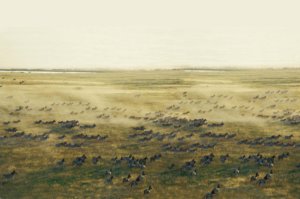
There’s a definite wow factor to the Makgadigkadi. What makes it so special for you? Can you explain your fascination with it?
The Kalahari is really special for me because it’s the spot on earth that has been inhabited continuously for the longest period of time by the same people. The accumulated knowledge of the Bushmen is the greatest on Earth. We need to value that properly and play our part in conserving that.
It’s also unlike anywhere else in Southern Africa. Makgadikgadi can be extraordinarily harsh. When it’s hot, it’s bloody hot, when it’s cold, it’s bloody cold. When it’s dry, you can get huge dust storms. When it rains, the thunderstorms are huge, and there’s water everywhere.
There’s also so much that is still unknown. There’s the sense of endless possibility. I’ve lived here most of my life, and I’m always looking for new things. There are still areas I haven’t been to out there. In today’s world, that’s precious.
Then there’s the amount of life. Yes, it’s harsh, but there’s so much life, especially when the rains arrive. When I was growing up we had 2 million wildebeest and hundreds of thousands of zebra in the Kalahari.
The migration was as big, if not bigger than the Serengeti’s. Then we had the crash in numbers in the 1970s and 80s. There are a few reasons for that, including the erection of the veterinary fences, but there were other reasons too.
Now the zebra and wildebeest numbers are slowly rising again, and we’re doing a lot of work with government, communities and researchers to figure out which migration corridors are most important, and also to work with local people to incentivise them to live with more and more wild animals.
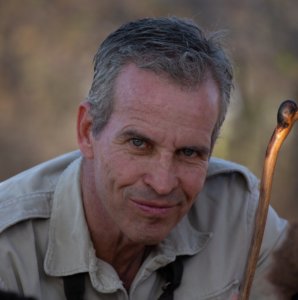
Safari tourism in Botswana – and Africa – has grown tremendously in the past fifty years. What impact has it had on the country, and its people?
It’s easy to forget what Botswana was like back in the 1960s before independence. We were the second-poorest country in the world, the poorest in Africa. There was almost zero wildlife tourism.
Now wildlife tourism has exploded in Botswana. Who would have thought! It’s the second-biggest earner of foreign exchange after mining and diamonds. And there is still huge potential for growth.
Now when people say Africa is a failed continent, I can confidently say, “No, it’s not – Botswana is a success story!” One of the things about growing up in Botswana is seeing the immense progress this country has made.
Obviously there has been human population growth, but I embrace that. For example, on our concession on the pans, we’ve all grown up together. I know everyone around here, and they know me. I like that, because it’s real.
Africa is not just about wildlife, it’s about people too. Humans have always been here, and are meant to be here. Of course a balance must be found, however.
Botswana’s success in conservation has seen an increase in some species of animals, especially elephants. And local people need to benefit meaningfully from living side by side with potentially dangerous animals. How have Jack’s Camp and your other camps contributed to the people of the areas you operate in?
Yes, there have to be real benefits from conservation. And that must come from us. We are benefiting and are in a position of privilege. We must take responsibility. I feel strongly about that.
We’re just a small family business in the middle of nowhere, yet we’ve been able to make a real difference to people in a remote, marginal area. We have shown that safaris in marginal areas of Africa like Makgadikgadi can be real drivers of social and economic development. As a family, we’ve believed in this place for a long time, and now the rewards to everyone are clear.
Local people here had very few options before tourism. Now they have options. These days in Botswana, locals don’t necessarily want to be sitting at a cattle post. But do they want to be driving a safari vehicle as a guide? Yes, quite probably.
So if we have made tourism work in the Makgadikgadi, then that model can spread to other marginal areas in Africa. That is our big achievement. Tourism brings value to these areas, which in turn changes how the land is used, which changes peoples’ attitudes to conservation, and it changes the livelihoods in those areas. Our responsibility is to spread the success to all the local people, so that they can also run their own safari businesses.
People can have their cattle, and people can work in safari tourism, as long as everyone benefits. For the long term future, that is much more sustainable, and the two can run side by side.
We have to see the challenge as a multi-generational, long-term project. Our short little lives seem so important to us that it blurs our vision. But it’s not just about what we want in our lifetime, it’s about the next ten or twenty generations that come after us.
Botswana is fortunate because we still can plan from a position of hope and belief, rather than fear. The country still has its wildlife and wilderness.
Speaking of local people, you’ve had a long friendship and association with the Bushmen. You grew up with them, and learnt to track and hunt with them, among other things. Now they are an integral part of the guest experience at Jack’s Camp. Can you give some context on their involvement at Jack’s Camp?
I grew up with a wonderful man called Cobra Keipeile, a Bushman from the Shuakhwe clan in central Botswana. He’s now over 70, but he helped build the first Jack’s Camp in 1962 with my dad. He still works as a guide at the camp.
It was rare to be friendly with a Bushman at that time, but I considered myself very privileged and fortunate to have him as my teacher in the Kalahari.
When I was a bit older, my father became friendly with researchers who were working with Bushmen in the western and central Kalahari. We went to those areas, lived with the Bushmen and went through all their initiations and trance dances. Those were the last true Bushmen in Southern Africa. Because of the war in Angola and Namibia, and the political situation at the time, those were no-go areas, so their culture was preserved.
I spent several years recording and documenting their way of life. Eventually, with the Bushmen’s agreement, I started taking guests into those areas, and the Bushmen received payment for those trips. But from a safari experience, it was difficult to take guests there, simply because of tricky logistics. So the Bushmen asked me if they could come to us!
They said to me, “You’ve used your knowledge, and made money as a safari guide. We want to do the same.” And it was hard to fault their logic, especially because they know far more than me in some respects. They embody a collective knowledge that goes back 200 000 years!
And so these days, a family of Bushmen from the western Kalahari come to live at Jack’s Camp for three months at a time. They get paid to live there, and to take guests out on walks, to share that knowledge.
They’ve historically been excluded, disenfranchised, and even treated as animals. Now they’re proud to share what they know. They want to be acknowledged. They want to be recognised. And we’re helping them do that.
What makes Jack’s Camp and your other camps unique? What do guests experience that they can’t anywhere else?
The big thing is the human perspective we offer, especially spending time with the Bushmen. The Bushmen have always been here and have that inseparable connection to the land. When you visit the pans, you can feel that sense of belonging too. Almost everyone who visits Jack’s Camp has a sense of that. This is where modern humans have lived continuously for 200 000 years.
Your ancestors, my ancestors, everyone’s ancestors lived here. This is home for all of us. We are an African animal, and when people come on safari, they are seeing a reflection of themselves. Whether it’s genetic memory, or something else, who knows, but you feel it. And that perspective is incredibly powerful to me.
Equally unique is the power of the landscape. It’s a harsh but powerful place, and it hits you hard. I think that’s good actually, because it gives people a real sense of the profound. We want guests to be comfortable in our camps, but also give them a taste of the power of raw nature.
Of course, there are also the meerkats, which are always a hit. It’s a very different kind of wildlife safari. You’re sitting on the ground, with wild meerkats standing on top of you, peering into your eyes. It’s the opposite of a game drive!
And then there’s the sense of space – both in terms of the huge landscape, and in terms of a safari style. We don’t want to tell guests what to do. We want their safari to evolve naturally, and give them the space to do it. Our motto at Uncharted Africa speaks to this: “Give them what they never knew they wanted!”
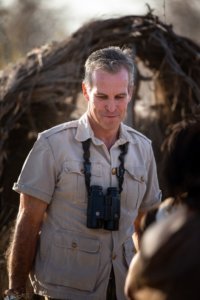
When you’re not at Jack’s Camp, you spend much time travelling to other areas of Africa as a private guide. Which other areas of Africa – besides the Kalahari – have impressed you?
The deep Sahara is very impressive to me. Especially the Ennedi and Tibesti regions in the north of Chad. Those are the richest parts of the Sahara, and have a long human history too, with plenty of rock art.
When you fly there in a helicopter, and land to take a pee, you will see stone-age tools lying all around. Much like Makgadikgadi in fact.
And like the Kalahari, there’s that huge expanse, that proper wildness. These extreme areas are more challenging to visit, but so much rewarding.
The other country I love is Ethiopia. There’s the Danakil depression, which is like being in Botswana at times. Then there are the high Simien mountains. And then the south is the most linguistically and ethnically diverse area on earth, after Papua New Guinea. It’s simply extraordinary.
In both the Sahara and Ethiopia, and in the Kalahari, human cultures are competing for resources in desert environments. And I find those challenges fascinating. All human culture is constantly going through transition. Nothing is static. It’s how we handle these changes that is important to me.
A place like the Virunga mountains in eastern DRC is also impressive. It’s raw, but it’s not comfortable, not chilled. That’s when I appreciate the Kalahari even more.
Does Jack’s Camp still feel like home for you?
I grew up here, it’s my home, and always will be. I spent almost my entire childhood with my father, and with the Bushmen. I’ve always known that I wanted to spend my life here. My son Jack – named after my father – also spent the first five years of his life in the Makgadikgadi with me. He goes to school now in South Africa, but for him, this is also home.
If I had my choice, I’d be there 100% of the time. At the moment, I can’t always be here, because of other responsibilities. But when I come back here, everything makes sense. Life makes sense when I’m here.
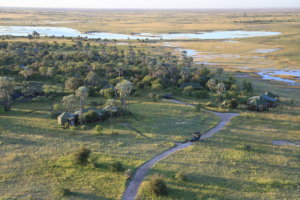
Special Offers
Our special offers are designed to help you experience everything southern Africa has to offer whilst also saving some all-important pennies. Whether you’re about to embark on a once-in-a-lifetime solo trip, or are celebrating a special occasion, have a peek at our offers and see what could be in store for you.
